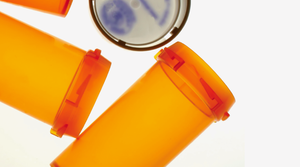Under a new policy that took effect on 1 May 2018, China will exempt as many as 28 medicines, including all cancer drugs, made overseas from import duties.
China to exempt cancer drugs from import taxes
Generics/General
|
Posted 01/06/2018
 0
Post your comment
0
Post your comment

China’s Ambassador to India, Luo Zhaohui, said in a tweet that this should ‘help reduce the trade imbalance between China and India in the future’. The move, however, is not India specific and is applicable to all members of the World Trade Organization.
India’s trade deficit with China stood at US$51 billion in 2016−2017. India has frequently asked for greater market access for its goods and services, including IT, pharmaceuticals and agriculture, in the Chinese market to reduce the widening trade deficit.
Some have seen this as a move to open the market to Indian pharma companies. In fact, India’s trade minister Suresh Prabhu hailed the move by China, saying that it ‘will boost drug exports from India and benefit the Indian pharma industry, which is known for exporting high quality drugs at affordable prices’.
Others, however, believe that the exemption will not make much difference as imports of Indian drugs both generic and anticancer are possible only with the approval of the China Food and Drug Administration (CFDA). India has been lobbying China to make approvals faster but it has not worked so far. CFDA currently takes three to five years to approve a drug registration. It would therefore only be possible to immediately increase drug exports to China if the country started accepting US Food and Drug Administration approval for Indian drugs.
However, Mr DG Shah, Secretary General at the Indian Pharmaceutical Alliance, pointed out that ‘as most of the cancer drugs are patented, this concession is meant for the US and will benefit US Big Pharma companies’.
China’s State Council has also pledged to reduce the value-added tax on such products to further ease financial pressures on patients. Currently, the import tax for cancer drugs from the US is 4% and the value-added tax is 17%.
These latest moves follow the unveiling of a new policy in April 2018 by China’s State Council whereby some generics manufacturers could qualify for a ‘high-tech enterprise’ designation that comes with a 15% corporate tax rate, compared to the 25% rate for other companies [1].
Related articles
China’s CFDA issues draft guidance on drug review and approval transparency
New guidelines expected to encourage generics in China
Reference
1. GaBI Online - Generics and Biosimilars Initiative. China introduces new policy to boost generics [www.gabionline.net]. Mol, Belgium: Pro Pharma Communications International; [cited 2018 Jun 1]. Available from: www.gabionline.net/Policies-Legislation/China-introduces-new-policy-to-boost-generics
Permission granted to reproduce for personal and non-commercial use only. All other reproduction, copy or reprinting of all or part of any ‘Content’ found on this website is strictly prohibited without the prior consent of the publisher. Contact the publisher to obtain permission before redistributing.
Copyright – Unless otherwise stated all contents of this website are © 2018 Pro Pharma Communications International. All Rights Reserved.
Source: BioSpectrum Asia,Business Standard, India Business Today, LiveMint
Research
Japan’s drug shortage crisis: challenges and policy solutions
Saudi FDA drug approvals and GMP inspections: trend analysis
EMA launches European shortages monitoring platform to tackle persistent medicine shortages

Generics/General Posted 03/12/2024
FDA releases one-year progress report for the Generic Drug Cluster

Generics/General Posted 28/10/2022
The best selling biotechnology drugs of 2008: the next biosimilars targets








Post your comment